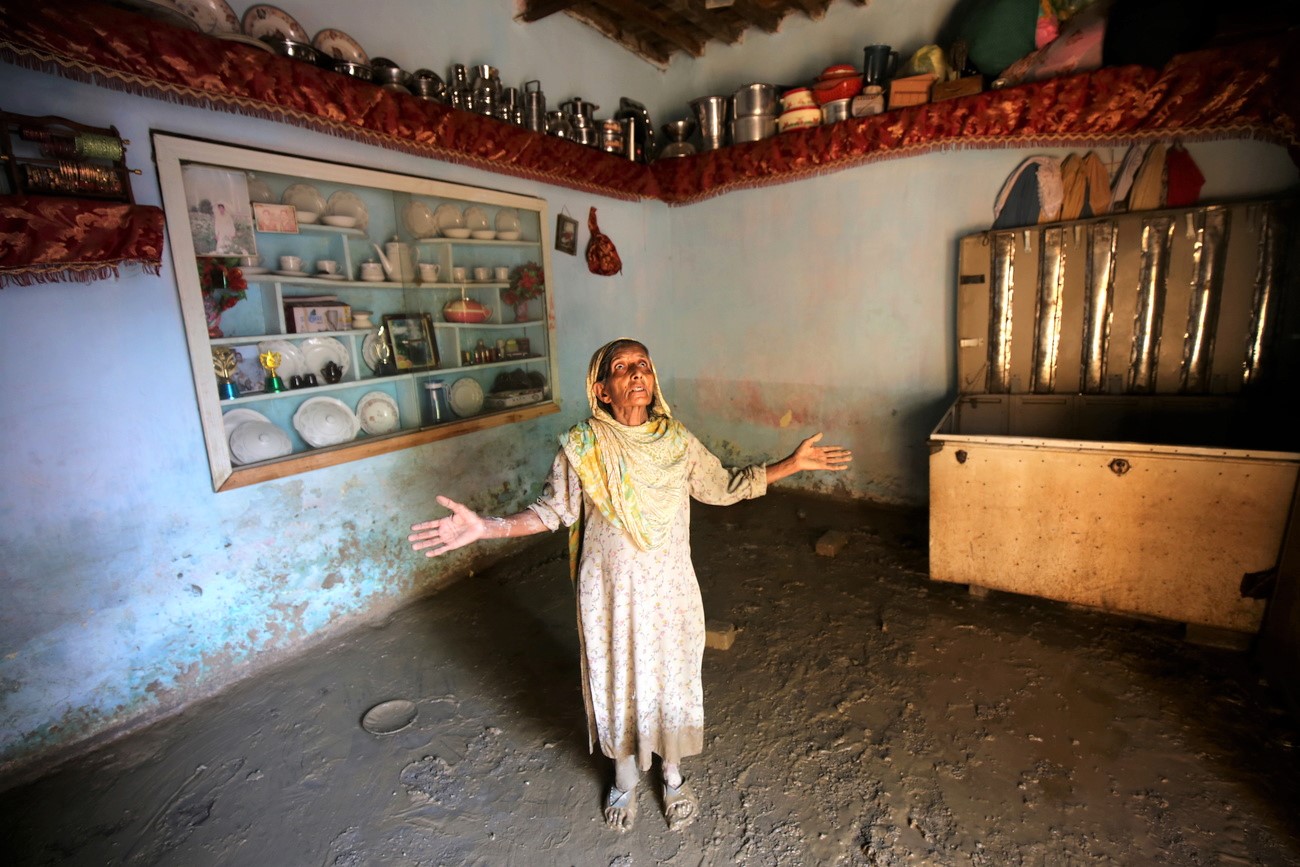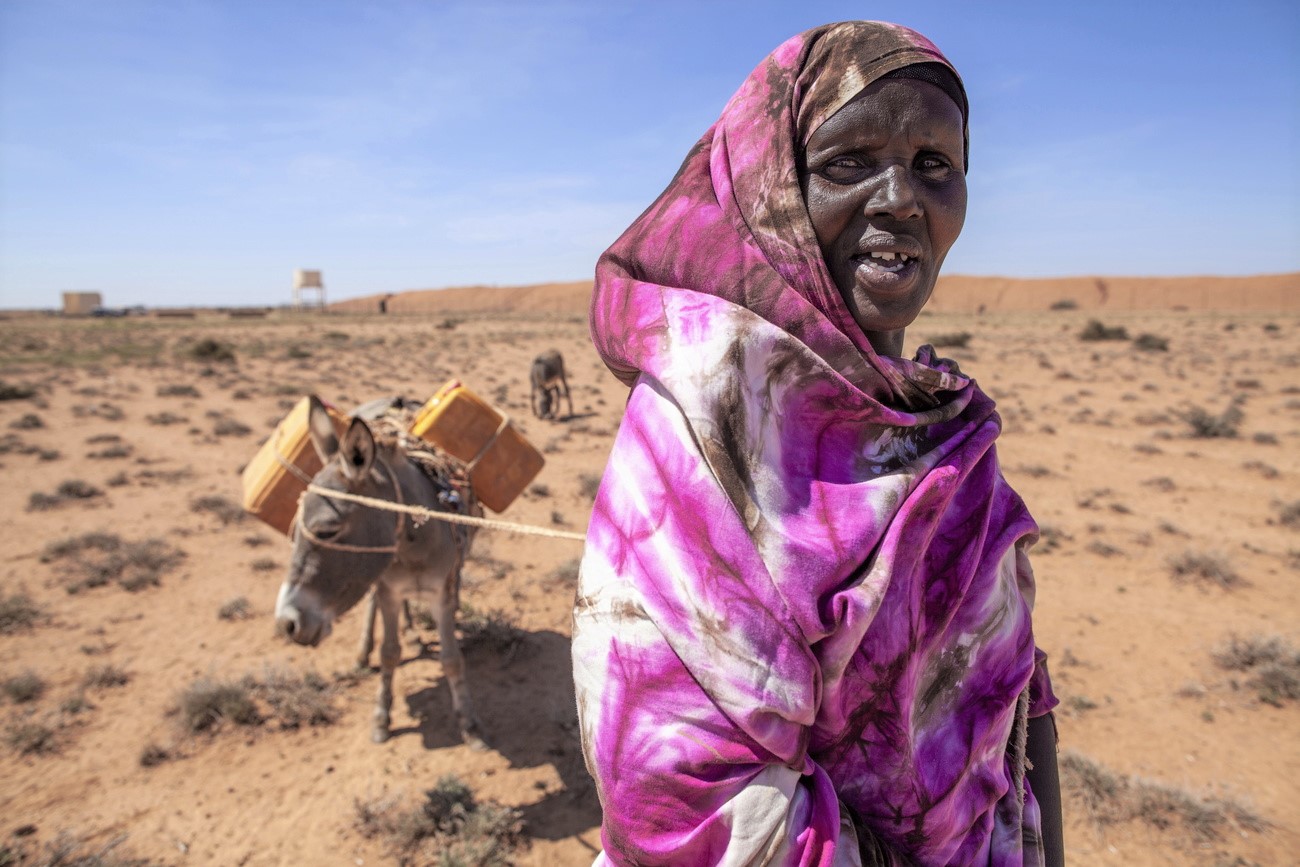
COP27 and the climate crisis: will rich countries pay?

Among the many topics to be tackled at the upcoming United Nations climate change conference (COP27) is financial aid for the countries most affected by the climate crisis. Switzerland is calling for increased investment in climate protection and asking for the support of countries that are in a position to contribute.
Wael Aboulmagd wants to see a shift “from promises to action” when around 90 heads of state and government arrive in the Egyptian resort town of Sharm el-Sheikh for COP27, the 27th annual United Nations conference on climate change, which begins on November 6. Aboulmagd, Egypt’s special envoy for the conference, has previously said that there is still a “huge gap” between countries’ climate action and what would be needed to comply with the Paris Agreement, which aims to limit global temperature rise to 1.5°C above pre-industrial level. A big point of discussion is financial aid for countries that are suffering most because of climate change.
Greenhouse gas emissions continue to rise, and the impacts of global warming on people and the environment are increasingly evident. Extreme events like the floods that submerged a third of Pakistan’s territory in August and the hottest and driest summer in Europe in 500 years once again highlighted the urgency of concerted global action.
However, keeping promises and working together has become more difficult at a time marked by the Russian invasion of Ukraine, the energy crisis, and tensions between the United States and China, the world’s two largest emitters of CO2. Dwindling gas supplies from Russia have prompted several countries, including Switzerland, to review their energy strategies. The global consensus on “phasing down” coal reached at last year’s conference in Glasgow, is no longer so solid.
What will be discussed at COP27?
From November 6 to 18, delegates and government officials will discuss the implementation of the Paris Agreement and how to meet emission reduction targets. They will also discuss the rules of the mechanism that allows countries to achieve their goals by financing climate protection projects abroad.
Last year, states pledged to increase their ambitions related to climate action and to present updated “Nationally Determining Contributions” (NDCs) every five years. They also pledged to improve their climate plans for 2030 ahead of COP27. But only 23 countries submitted their updated reduction targets by the September deadline this year. Current pledges by the 194 countries that signed the Paris Agreement will lead to 2.5°C of warming by the end of the century, according to the UN climate agency’s latest report, published just days before the COP27.
Watch the short video below to understand how CO2 offsets work:
Gas will also be on the COP27 agenda — with African countries pushing for more fossil fuels for the continent’s economic development — as well as financial means to help the poorest and most vulnerable states cope with climate change. Among the thorniest issues is compensation for loss and damage caused by global warming.

More
Climate finance: what about international solidarity?
What are rich countries doing?
In 2009, wealthy countries agreed to allocate $100 billion (CHF99.4 billion) per year to finance emission reduction and climate adaptation projects in developing countries. The target, set for 2020, has not been met: funding allocated to the most vulnerable countries was just $83.3 billion that year, according to the latest assessmentExternal link by the Organisation for Economic Cooperation and Development (OECD).
Last year, at the end of COP26 in Glasgow, the richest countries pledged to double their financial contributions to adaptation measures. To date, most aid has been devoted to mitigation measures like emissions reductions, even though the most affected countries urgently need to be able to adapt to the effects of climate change. For Pakistan, for example, flood control measures are more urgent than solar power plants.
What are the poorest countries asking for?
First and foremost, they want the $100 billion-per-year pledge to be fulfilled. The target for this has been moved to 2023. Low-income countries are also asking for the creation of an additional funding mechanism focused exclusively on compensating damage and losses due to rising sea levels or extreme weather events such as floods or typhoons.
Countries in the global South are the least responsible for global emissions with Africa, for example, generating less than four percent of total emissions. Yet they pay the highest priceExternal link, both in terms of financial losses and human lives. They therefore expect some form of compensation.
The United States and the European Union have already spoken out against a compensation fund for the most vulnerable countries. At COP27, a different idea may be addressed instead: a new global tax on fossil fuels.
What are Switzerland’s priorities?
Switzerland will work to ensure that the countries participating in COP27 commit to concrete climate protection decisions. “The priority is not to lose sight of the 1.5 °Celsius target,” says Franz Perrez, Switzerland’s chief negotiator at COP27. For this, he explains, it will be essential to adopt a work programme on mitigation, as has been done for adaptation.
“We want to create a space where countries don’t just exchange experiences, but look for solutions to increase their emission reduction targets, also in collaboration with the private sector,” Perrez says.
The Swiss delegation will also work to increase global investments in climate protection. The aim is to formulate a new funding target for the period after 2025. All countries in a position to do so must lend their support, Perrez says. “We are of the opinion that a state with a lot of capacity [Gross Domestic Product] should help the poorer ones, regardless of whether it is an industrialised country or not,” he says.
The issue of loss and damage should absolutely be recognised, Perrez argues. However, at the moment Switzerland has many reservations about creating a specific fund, as asked for by some NGOs, as there is still no agreement on who will participate in it and how it will be used. “Such a fund must give priority to the poorest and most vulnerable countries, but there is no agreement on this point. Moreover, it will take years before it is operational. Right now, it is not a solution,” Perrez says. Switzerland prefers to deepen the topic of loss and damage and evaluate possible options under the so-called “Glasgow Dialogue,” which will run until 2024.
The government believes that Switzerland should contribute $450-600 million (public funds and private sector) towards the $100 billion envisaged to help the countries suffering most from climate change. The figure considers Switzerland’s economic capacity and its emissions, according to the Federal Office for the Environment. In 2020, Switzerland contributed CHF659 million ($662 million), an amount that although higher than expected is considered insufficient by NGOs such as Alliance Sud, which are calling for a contribution of CHF1 billion.
Translated from Italian; edited by Sabrina Weiss

In compliance with the JTI standards
More: SWI swissinfo.ch certified by the Journalism Trust Initiative
































You can find an overview of ongoing debates with our journalists here . Please join us!
If you want to start a conversation about a topic raised in this article or want to report factual errors, email us at english@swissinfo.ch.